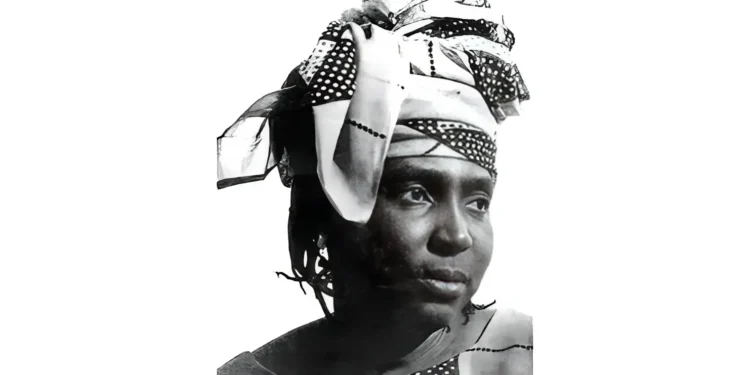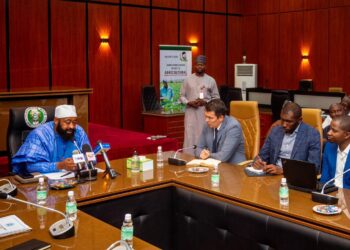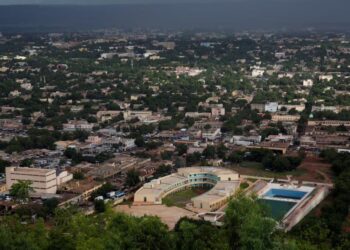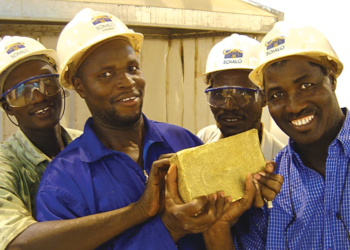Mariama Bá is a prominent figure in African feminist literature. As a writer and women’s rights activist, she used her pen to address complex social and political issues, such as polygamy, gender equality, and the challenges faced by African women in a society torn between tradition and modernity. Her career, which began as a teacher and ended as one of Africa’s most celebrated female writers, reflects a dual commitment: expressing women’s realities and advocating for social change.
Mariama Bá was born on April 17, 1929, in Dakar, Senegal, to a prominent Senegalese family. Her father was a civil servant and served as Minister of Health under President Léopold Sédar Senghor. Her mother died when she was young, and she was raised by her grandparents. This social situation exposed her to strict traditions, especially those that governed the lives of girls.
Bá was fortunate to receive a good education. She attended the French school and then the École Normale Rousseau in Saint-Louis, a boarding school for female teachers. This school was an important place in shaping her intellectual awareness. There, she read Western literature and was exposed to new ideas about women’s rights. Although her grandfather opposed her education, her father supported her, enabling her to continue her studies.
After graduating, Ba worked as a teacher and then as a regional school inspector. During this period, she became involved in journalism, writing articles on women’s issues in local magazines, which provided her with a platform to express her opinions.
Mariamma Ba’s literary work, though limited, is considered highly influential. She wrote only two novels, but each one generated widespread acclaim in literary and academic circles.
“A Very Long Letter” (1979): This novel is considered a masterpiece of African literature. The novel tells the story of a Senegalese woman named Ramatoulaye, whose husband leaves her for a younger woman. The novel is presented in the form of a long letter from Ramatoulaye to her friend Aissatou, who has gone through a similar experience.
The novel addresses the issue of polygamy from a feminist perspective, revealing the emotional and social challenges women face in a polygamous society. Ba shows how tradition can interfere with women’s rights and how women can regain their dignity in the face of injustice. This novel shocked Senegalese society, as it was the first literary work to address this issue so openly. The novel won the Noma Prize for Publishing in Africa in 1980, bringing her international acclaim.
I was very surprised. Even more so because I did not know of the existence of the prize. And even more, I did not even know that my book was being considered for any prize … A friend came to my house to tell me I had won. I was unaware of it. I didn’t even realise that there was prize money … I was even more proud and happy because it was not only a prize for Francophone Africa, but a prize for black Africa. That is, all of French- and English-speaking Africa. There were many candidates, so it was a prize which obviously was important.
“The Red Song” (1981): This novel is considered a continuation of her previous work. It tells the story of two women from different social backgrounds, showing how social class and education can impact a woman’s life. In this novel, Ba offers a critique of Senegalese society, showing how poverty, corruption, and discrimination can impact a woman’s life. The novel focuses on the importance of education for women and the need for women to achieve financial independence.
Mariamma Bá was active in several women’s movements. She believed that literature was a tool for change, and that writers had a responsibility to express the reality of their society. She fought for gender equality, access to education for girls, and the rejection of traditions that restricted women.
Bá was also a member of several women’s organizations and participated in numerous conferences on women’s rights. She believed that true emancipation for women could only be achieved through education, financial independence, and participation in public life.
Mariamma Bá died on August 17, 1981, at the age of 52, after a battle with cancer.
Mariamma Bá’s legacy is profoundly influential. Although her literary output was limited, it revolutionized African literature. Bá’s work is considered the foundation of African feminist literature. She was the first writer to address women’s issues with such frankness and depth, opening the door for a new generation of African female writers.
Ba offered a sharp critique of Senegalese society, particularly the traditions that restricted women. She believed that traditions must be reviewed and that society must evolve. She believed that education was the key to women’s empowerment, and that women should pursue education and become financially independent.
According to Brittle Paper, ““Memories of Lagos” is the first piece of new writing by Bâ to be seen in decades and her only known poem. The text records Bâ’s experiences at the 1977 Second World Black and African Festival of Arts and Culture (FESTAC), held in Lagos, Nigeria. This text appeared in a Senegalese periodical several years before Bâ’s novel So Long a Letter, but it has remained unknown to scholars.”
The first few lines of Bâ’s poem “Memories of Lagos” is below:
Festac . . . Memories of Lagos
Lagos airport . . .Slowness of administrative formalities; slowness of luggage arriving!
Slowness again: the journey to the city . . .
Finally, fraternal and revitalizing handshakes!
And the atmosphere of Festac surrounds me . . . Festac?
It is everywhere: badges on chests, multicolored fabrics with geometric designs,
Brightening up the streets!
Objects or animals prominent on sparkling copper rectangles!



























































